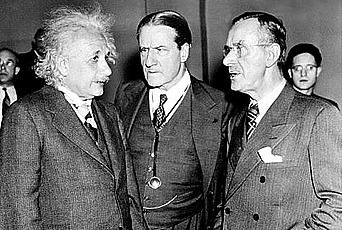
In Weimar Germany, Women Fought for Abortion Justice
By Minou Arjomand, current Visitor in the School of Social Science:
"On the last day of 1930, the pope promulgated the Casti Connubii encyclical which forbade Catholics from using contraceptives and reaffirmed the Catholic Church’s stance against abortion. Then, in February 1931, two doctors, Friedrich Wolf and Else Kienle, along with 300 of their patients, were charged with violating the abortion ban. Even before his arrest, Wolf was well-known for his documentary play, Cyankali (Cyanide), which was adapted into a movie about a working-class woman who dies after a botched abortion. Over 1,500 protests sparked by the arrests took place across Germany for International Women’s Day on March 8, 1931. When the doctors were released following a seven-day hunger strike by Kienle, they spoke at a rally of 15,000 people in Berlin.
These protests were coordinated by a broad alliance of political and social organizations on the Left, birth control advocacy groups, female and socialist physician associations, and a celebrity committee including Albert Einstein and screenwriter Thea von Harbou. Groups like the Society for Sexual Reform linked the fight for abortion with the fight to legalize homosexuality. The 1931 protests were accompanied by sympathetic press coverage in progressive newspapers, including a special segment in Die Welt am Abend in which women recounted their own abortion stories."
Read more at Jacobin.


